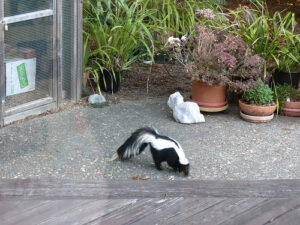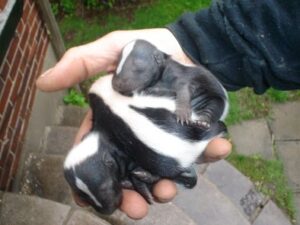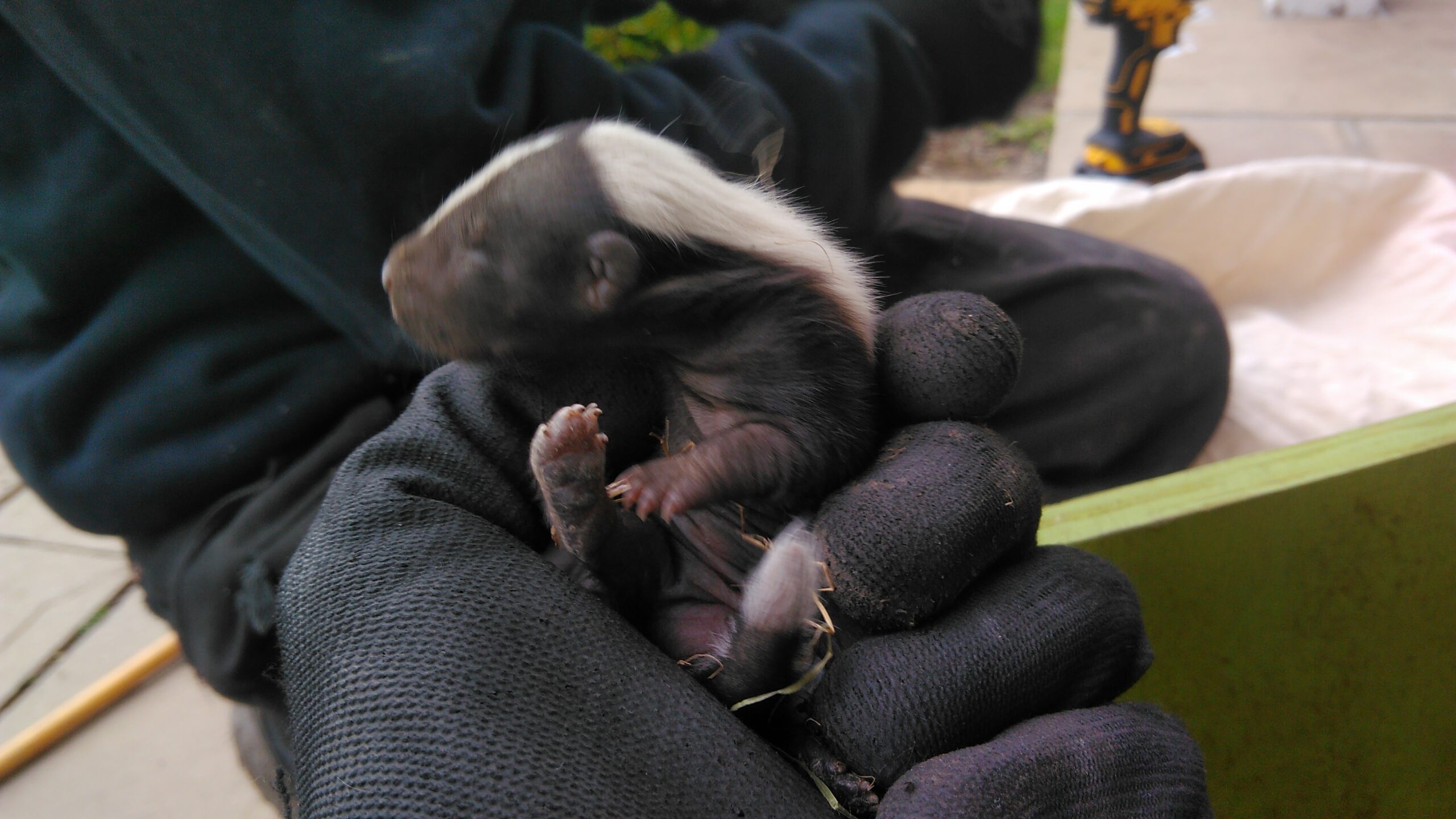When you see a skunk on your property or catch a whiff of its unforgettable perfume, you may be asking yourself just how long your new four-legged friend could possibly stick around. The answer is that skunks generally live two to four years in nature. But if one skunk has found your property to be appealing, chances are that even after it eventually dies, another will take its place. Your best bet is to call Skedaddle Scarborough wildlife control to have your furry neighbour humanely evicted.
Causes of Death
Like most wild animals, skunks live significantly longer in captivity, generally seven to 10 years. However, unlike most small animals, their short lifespan in nature is not due to predators.
Predators
The National Wildlife Federation reports that predators cause less than 5% of skunk deaths. Their bold coat pattern is not made to blend in. Skunks are happy to stand out, relying on predators to remember how bad it is to be sprayed. The strategy works well for them — only inexperienced or desperate animals mess with skunks. That said, the following are the animals most likely to attack a skunk:
- Dogs
- Badgers
- Foxes
- Coyotes
- Mountain lions
- Owls
Disease
There are several diseases that ravage skunk populations, which is not good news for you if you find them on your property. Of course, not all skunks are carrying diseases, and not all their diseases can be spread to people. However, it’s always best to act as though every skunk you encounter could make you sick because just looking at the animals is not enough to tell you if they are healthy. These are a few of the serious contagious diseases that skunks can carry:
- Rabies
- Canine hepatitis
- Canine distemper
- Intestinal roundworm
- Leptospirosis

Skunk Habits
Skunks use their long claws for burrowing more often than to protect themselves since their spray is such an effective defense strategy. They are lazy enough to like already-dug holes if they find them, but easily and quickly dig new burrows when they can’t find a convenient hole.
These animals are most active at night. They generally spend the day sleeping in their burrows and then forage for food when it’s dark and quiet. Skunks eat insects and small animals such as rodents and frogs, but they also enjoy raiding berry bushes, vegetable gardens, eggs from chicken coops, and your trash.
In addition to finding one or more holes, the early sign that a skunk has moved in is the scattered trash it leaves behind from its nighttime adventures.
What To Do If You Find a Skunk
Skunks are an important part of a healthy ecosystem, but they can be disastrous for your property. The holes they create at best look bad in your landscaping and at worst, weaken the foundation of your outdoor structures. The food they take makes it difficult to garden or even keep your garbage can tidy. Then, of course, there is the constant risk of you, pets, and your property being sprayed.
Doing nothing about a skunk means that it will remain on your property for two to four years on average. However, if the conditions that attracted the first skunk remain the same, there is a strong possibility that once the first skunk eventually dies, another will move in. Attempting to capture the skunk puts you and your family at risk of serious diseases.

Scarborough Animal Control Is Here To Help
Here at Skedaddle Humane Wildlife Control, we have over 30 years of experience removing skunks, whether you have one, or a mother with a litter of babies. We can safely and humanely take care of wildlife and then show you how to skunk-proof your property to prevent others from moving in. Call us for help so that you can start enjoying your yard again.



